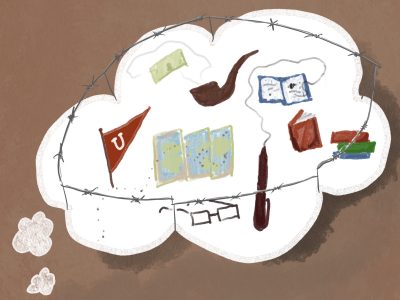“This finding has been built on the strength of comparative research that supports a relatively parsimonious causal claim: the organizational coherence and encompassingness of working class mobilization is directly correlated with the size and depth of the welfare state, which is in turn directly correlated with more egalitarian economic and social outcomes. It is moreover notable that these social gains have not come at the expense of economic dynamism, and indeed, that social democratic states have been especially proficient at successfully adapting to the competitive challenges of globalization.”
The text above, from “Democracy, Participatory Politics and Development,” is objectively confusing to read for likely all but upperclassmen political science students. However, the point that it’s making is not solely valuable to that group. Even such a text as above, is notably less convoluted than some other vital political theories and literature. A vast amount of literature has been written about uniting the working class against capitalist exploitation, and yet is written in overly complicated terms most inaccessible to that very class.

While this may not initially seem to be a huge issue, the reality is that if even college students majoring in relevant fields are struggling to comprehend what a critical text is saying, the text is inherently inaccessible.
If these groups — often blamed for their own lack of action — are excluded from educational theory due to excessively complicated jargon and writing styles, change will not occur.
The working class do not have the same hours in a day to spend purchasing, reading, digesting and discussing endlessly complicated theories about class and capitalism — they’re working and spending the little time they have left on themselves or their families.
Similarly, migrant communities are already working long hours, adapting to an entirely new environment, and adjusting to language barriers. The simple fact is that the majority of marginalized groups do not have the time to devote themselves to understanding topics, theories, and literature that have been so heavily over-intellectualized — but this doesn’t mean that they don’t deserve the access to them.
In fact, we should be working overtime to ensure that this gap in information is bridged and that the groups who would most benefit from such theories and information are actually aware of its existence. Thus, perhaps focusing more on simplifying complex concepts could help curb this barrier to accessibility.
One might claim that simplifying theory will no longer do justice to the concepts or that the literature as a whole will become “dumbed down.”
However, I would argue that popularizing the simplification of such concepts would serve as a greater incentive for people to learn more about them, as well as serve as an excellent stepping stone and foundation for those who legitimately do not have the time or energy to dedicate to such topics.
Regardless of potential solutions, it’s vital to ask: Is this pattern of over-intellectualized writing merely a product of extreme education and intellect or actually a veiled form of gatekeeping?
By overcomplicating theories which can actually be broken down into more simple concepts, writers are, perhaps inadvertently, disincentivizing already disadvantaged people from accessing the intellectual resources to achieve liberation.
If this popularized style of over-intellectualized theory is merely the coincidental result of high education, then this lack of accessibility exists only as an unintended consequence which can be amended.
However, the latter option of this style becoming popularized to gatekeep education is far more insidious: In gatekeeping the instruments to one’s liberation, this pattern of over-intellectualizing critical theory is effectively keeping people shackled.
Theory should not be meant for over-intellectualized socratic seminars in affluent, detached and impossibly-inaccessible classrooms. It should be for creating change, dismantling barriers and achieving real-world tangible results.























































































































